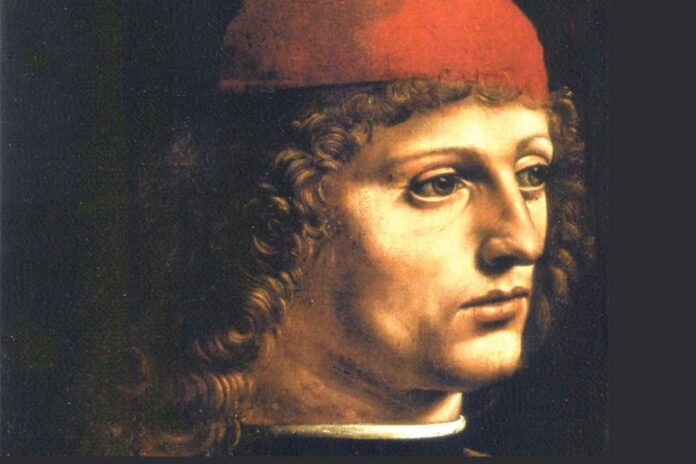Marsilio Ficino (19 October 1433 – 1 October 1499) was an influential Italian scholar, Catholic priest, and humanist philosopher of the early Italian Renaissance. A key figure in the revival of Neoplatonism, Ficino engaged deeply with the major intellectual currents of his time. He is best known for being the first to translate the complete works of Plato into Latin, making these classical texts accessible to a broader European audience. Ficino also founded the Florentine Academy, an intellectual center dedicated to the study of Plato, which played a pivotal role in shaping the Renaissance and the course of European philosophy. His work bridged the worlds of philosophy, astrology, and spirituality, influencing thinkers for generations.
Introduction
Marsilio Ficino was more than just a philosopher; he was a pivotal figure in the intellectual revolution of the Renaissance. His synthesis of ancient Greek philosophy with Christian thought sparked a transformation that influenced art, science, and thought during one of the most dynamic periods in history. But who was Marsilio Ficino, and how did his ideas shape the world as we know it? In this article, we’ll dive deep into his life, works, and enduring legacy.
Whether you’re a history buff or simply curious about how Renaissance thought evolved, this exploration of Ficino’s impact will illuminate why he remains a crucial figure to this day.
Who Was Marsilio Ficino?
Marsilio Ficino was born in 1433 in the Republic of Florence, Italy, into a family that valued education. He would go on to become one of the leading figures of the Italian Renaissance, known for his translations of Platonic and Neoplatonic texts and his work as a philosopher, theologian, and astrologer.
Ficino’s greatest achievement was the restoration and revival of ancient Greek philosophy, particularly the works of Plato. He worked under the patronage of the Medici family, translating key works that had long been lost to Western thought. Ficino’s vision was unique: he believed that philosophy, religion, and the arts were interconnected, and through his works, he bridged the classical world with Renaissance ideals.
Marsilio Ficino’s Influence on Renaissance Thought
Ficino’s ideas played a critical role in shaping the Renaissance. His focus on Neoplatonism—an interpretation of Plato’s teachings—helped usher in a new era of philosophical and cultural exploration.
1. Reviving Ancient Philosophy
Ficino’s most famous achievement was his translation of Plato’s complete works into Latin. At a time when most Europeans only had access to fragmented ideas about Plato, Ficino’s translations provided a comprehensive view of Plato’s philosophy. This access to Plato’s ideas deeply influenced Renaissance thinkers, artists, and scholars, laying the groundwork for a cultural revival of classical ideals.
2. Neoplatonism and Christian Theology
Ficino’s interpretations of Plato were not purely secular. He blended Neoplatonism with Christian theology, creating a unique synthesis that was both intellectually stimulating and spiritually meaningful. For Ficino, the soul’s journey towards God mirrored the ascent of the philosopher’s mind towards the eternal truth. This concept of divine illumination appealed to many Renaissance thinkers, who saw it as a way to reconcile the wisdom of the ancients with Christian faith.
3. Astrology and Philosophy
In addition to philosophy, Ficino was also deeply involved in astrology. He believed that the stars and planets had an influence on human behavior and destiny. His work “De Vita” (On Life) explored the intersection of astrology, health, and personal well-being, giving rise to Renaissance astrological practices that shaped the medical and philosophical landscapes of the time.
Marsilio Ficino and the Medici Family
Ficino’s work was strongly supported by Lorenzo de’ Medici, one of the most powerful patrons of the Renaissance. The Medici family provided Ficino with the resources to translate key Greek texts and establish a philosophical academy. In return, Ficino’s ideas contributed to the cultural and intellectual vibrancy of Florence, the heart of Renaissance Italy.
Lorenzo’s patronage allowed Ficino to gather like-minded scholars, many of whom would go on to influence Renaissance thought in significant ways. The Medici court became a hub of intellectual exchange, with Ficino serving as one of its leading thinkers. His influence extended beyond philosophy, shaping the art, literature, and culture of the Renaissance.
The Legacy of Marsilio Ficino
Marsilio Ficino’s contributions to philosophy, religion, and culture continue to resonate today. His work provided the intellectual foundation for later Renaissance thinkers, including Giovanni Pico della Mirandola, who would push the boundaries of humanism even further.
Ficino’s efforts to revive ancient Greek philosophy gave birth to a flourishing of thought that spread throughout Europe, contributing to the Age of Enlightenment. His Neoplatonic views on the nature of reality and the human soul influenced artists like Raphael and Michelangelo, who integrated his ideas into their works.
Even modern thinkers draw on Ficino’s ideas. His belief in the interconnection between human beings and the divine resonates in contemporary discussions of humanism and spirituality. Ficino remains a key figure in understanding the intellectual underpinnings of the Renaissance.
Key Works of Marsilio Ficino
Marsilio Ficino’s writings are vast and diverse, ranging from philosophical treatises to practical guides on health and well-being. Some of his most notable works include:
- The Platonic Theology – Ficino’s magnum opus, which blends Platonic philosophy with Christian doctrine.
- De Vita – A guide to astrology and the influence of the stars on human life, focusing on health, longevity, and the soul.
- Letters – A collection of Ficino’s correspondence with other Renaissance intellectuals, offering insights into his thoughts on philosophy, religion, and the arts.
These works not only provided the intellectual tools for Renaissance thinkers but also cemented Ficino’s place in history as one of the leading philosophers of his time.
Frequently Asked Questions (FAQs)
1. What is Marsilio Ficino most famous for?
Marsilio Ficino is most famous for his translations of Plato’s works into Latin, which had a profound impact on Renaissance philosophy. He also blended Platonic and Christian thought, contributing to the development of Neoplatonism during the Renaissance.
2. How did Ficino influence the arts?
Ficino’s philosophy, particularly his ideas on beauty and the divine, influenced artists like Raphael and Michelangelo, who incorporated his Neoplatonic ideas into their artwork, reflecting the connection between the physical and the spiritual.
3. Was Ficino involved in astrology?
Yes, Ficino was deeply involved in astrology. He believed in the influence of the stars on human life and wrote several works, including De Vita, on the intersection of astrology, health, and personal well-being.
Wrapping Up: The Enduring Impact of Marsilio Ficino
Marsilio Ficino’s intellectual journey helped bridge the gap between ancient philosophy and Renaissance thought, influencing everything from art to science to theology. His ability to weave together Platonic ideas with Christian belief systems created a unique philosophical legacy that continues to shape modern thought. Whether through his translations, his spiritual philosophy, or his influence on Renaissance culture, Ficino’s contributions remain an integral part of history.
If you’re interested in exploring the rich history of the Renaissance or delving deeper into the world of philosophy, Ficino’s works are a must-read. His ideas are timeless, and his legacy is a testament to the power of intellectual curiosity and cultural exchange.




